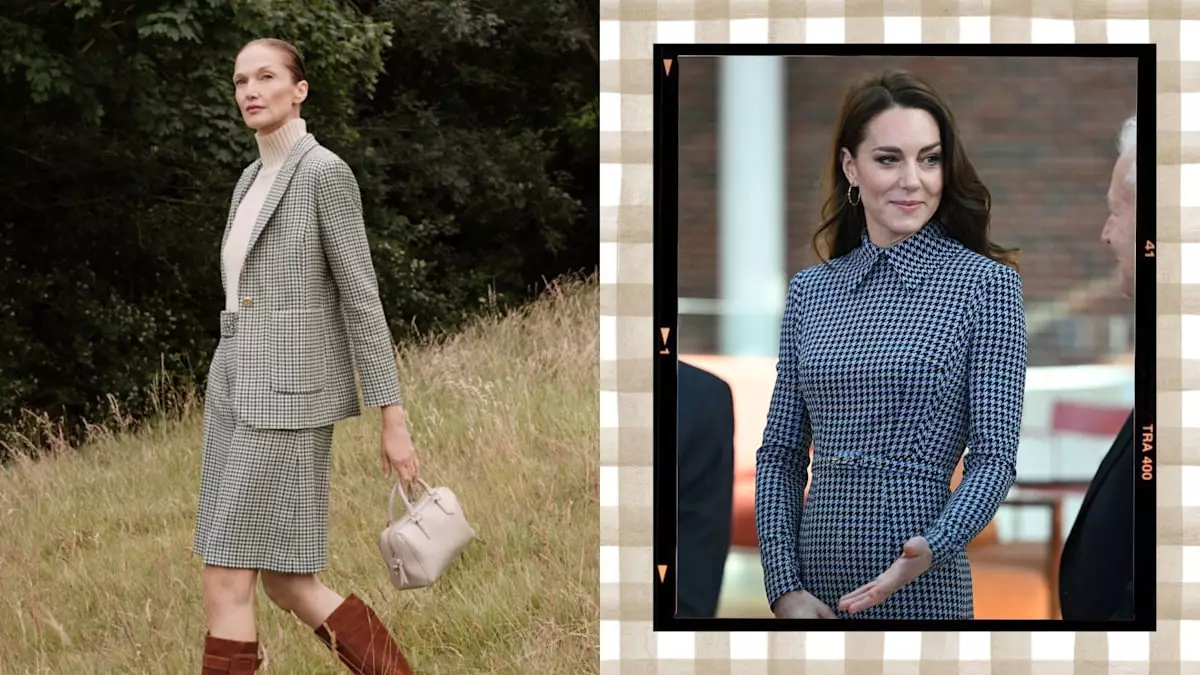As we navigate through a time marked by environmental challenges and ethical considerations, the fashion industry stands at a critical crossroads. Traditional fashion practices, particularly the fast fashion model, have come under scrutiny for their detrimental effects on our planet. The allure of affordable and promptly available clothing has come at the price of overflowing landfills and significant carbon footprints. Companies are now responding to a growing consumer demand for more sustainable practices, and one innovative approach that has emerged is the concept of clothing rental services. L.K.Bennett, a British brand cherished by notable figures such as the Princess of Wales, is one of those leading this charge with its rental service that has transformed how customers think about clothing acquisition.
The explosion of e-commerce and fast fashion has rendered the fashion landscape increasingly wasteful and exploitative. Recent estimates suggest that the textile industry accounts for roughly 10% of global greenhouse gas emissions, with millions of tons of clothing ending up in landfills each year. Such alarming statistics have prompted many to reconsider their shopping habits and explore alternative strategies, such as rental fashion. This innovative model not only allows consumers access to high-quality garments but also fosters a shift toward a more circular economy where clothing can be reused rather than discarded.
L.K.Bennett’s rental service, aptly named “LK Borrowed,” distinctly deviates from traditional rental schemes by operating on a subscription basis. Members pay a monthly fee of £79, gaining access to two stylish items at a time, with the option to rotate up to eight different outfits each month. This relatively fixed subscription model enables individuals to refresh their wardrobes without the guilt or financial burden associated with high-street purchases. Adding to its appeal, the service offers members the chance to purchase rented items at a fraction of the cost – allowing savvy shoppers to potentially own luxury items without breaking the bank.
For some, the relationship between personal finance and sustainable fashion may seem paradoxical, but my personal journey toward conscious consumerism has proven otherwise. Having committed to avoiding fast fashion years ago, I now prioritize purchasing second-hand, vintage, or ethically produced clothes. This shift has not only reduced my ecological footprint but has, unexpectedly, led to a more frugal lifestyle. Previously, my clothing expenditure would often exceed £100 monthly; however, I have discovered that by making intentional purchases, I can spend significantly less.
Investing £79 for an array of stylish clothing options equates to less than my former fast fashion spend, while providing an avenue to enjoy high-quality outfits. Approaching fashion with a mindset of resourcefulness transforms the experience into one of creativity and sustainability, allowing for a raw reconfiguration of my personal style.
Consider the broader implications of such services on society and the environment. As more individuals embrace rental fashion, we may witness a transformational shift in consumer behavior, fostering awareness around garment life cycles and challenging prevailing notions about ownership and self-expression through clothing. With brands like L.K.Bennett at the forefront, the fashion narrative can evolve from excessive consumption to mindful curation.
In a city like London, where the costs of living are high, the economic feasibility of a rental wardrobe adds to its allure. It is a meaningful option for many, surpassing the expenses of gym memberships, tech subscriptions, and transport fares. The transition to rental services creates a new landscape where accessing clothing is not just about possession, but about experiencing variety, novelty, and luxury sustainably.
In summation, the clothing rental model represents a promising and necessary evolution in how we engage with fashion. By allowing individuals to partake in a conscious consumer culture, services like LK Borrowed pave the way for a more sustainable and environmentally friendly approach to dressing. With consumer habits shifting and brands adopting more responsible practices, it is evident that the future of fashion may very well lie in shared wardrobes rather than overflowing closets. As we each take steps to redefine our styles sustainably, we embrace not just a wardrobe makeover, but a collective movement toward reducing fashion’s impact on our world.

